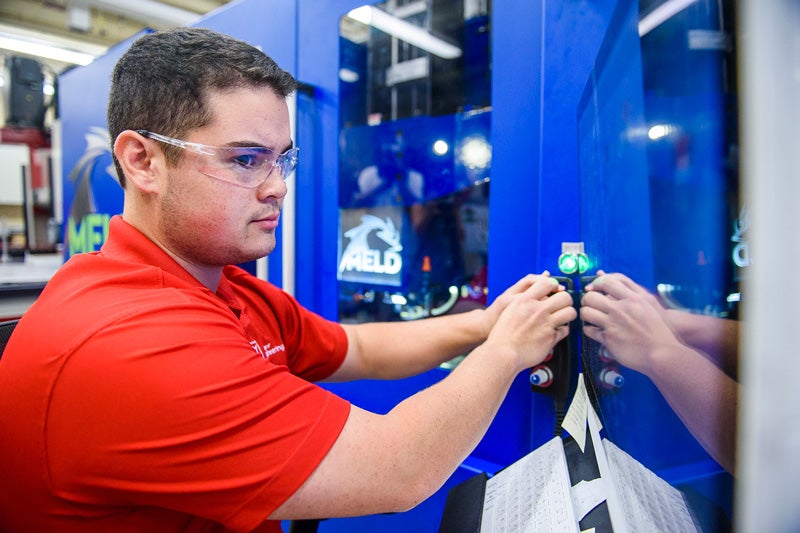The Division for Research helps UA researchers patent and commercialize their discoveries. We provide expert support, resources, and guidance to navigate the patenting, licensing, and startup creation process, ensuring your discoveries reach the market. Partner with us to accelerate the commercialization of your groundbreaking research and inventions.
Getting Started
The path from the lab to the marketplace place depends on the innovator and the level of readiness of their technology. There are two standard options for how to move forward with Research:
- Speak with an Research representative about your technology to gauge the best time to disclose an idea.
- Submit an invention disclosure to start the patent process.
- If you are in the early stages of research and do not yet have much data showing proof of concept, we would suggest starting the conversation with Research rather than formally disclosing your invention. Our office will be able to help you further once the project has a bit more structure.
- If you have data and proof of concept, it is important to keep in mind the timeline and reporting requirements when seeking a patent. When a formal invention disclosure is submitted, it essentially starts a countdown for deadlines, especially when the project is federally funded. If you plan to keep the technology confidential with The University of Alabama System by not publicly disclosing the project (journals, seminars, manuscripts, etc.) and the risk of another inventor filing a patent application ahead of you is low, then waiting to file a formal invention disclosure might be the best route for you. Contact our office to discuss further.
- If you are planning to disclosure the project publicly or there is a lot of competitor innovation in your sector, please submit your idea via a formal invention disclosure. Additionally, if your public disclosure is taking place in less than a month, please contact our office directly and we will expedite the process.
PLEASE NOTE: Our services are only available to people affiliated with The University of Alabama. Please do not submit ideas to our office unless you are or have been affiliated with UA. If you are not affiliated with our institution, please consider connecting with the USPTO’s Nationwide Pro Bono Program.
Technology Transfer Process
Pre-Approval Process
- Invention Disclosure
- Inventor Review
- Triage Assessment
- IP Committee Review
Research does not file patent applications for all invention disclosures it receives. Only technologies that offer reasonable commercial potential and return on investment will be selected for further processing. There are 3 potential outcomes of our pre-approval process:
- DECLINED (RED): Our office might decide not to pursue a patent for a number of reasons. Perhaps we discover that the technology is not truly novel due to prior disclosure or pre-existing patents are found during our analysis. Maybe the development costs are too high or the market potential too low to warrant the expediure of applying for a patent. Whatever the case may be, our office is here to explain the rationale behind the decision fully. Please keep in mind that if Research chooses to not pursue a patent, you still have the opportunity to seek a patent yourself. If this is the chosen route, we suggest seeking assistance from the USPTO’s Pro Se Assistance Program.
- NEED MORE INFO (YELLOW): Occasionally, an idea may seem promising but is simply not ready to be approved. In those cases, our office will work with you to pinpoint what data is needed prior to determining patentability.
- APPROVED (GREEN): Congratulations! Our office is ready to move forward filing formal patent paperwork and seeking a licensee via the post-approval steps listed below.
Post-Approval Process
- Patent Application
- Marketing
- Negotiations & Licensing
- Commercialization & Royalties
During the post-approval process, our office will partner with you to better understand your technology and apply for a provisional patent through the USPTO. We will also focus on spreading awareness about your innovation to existing businesses and entrepreneurs with the goal of securing a licensing agreement, which yields royalties back to both you and the University.
Our office will provide updates regarding our marketing efforts and industry feedback. Within a year of applying for the provisional patent, our office will determine whether or not we will move forward with a formal patent. This decision is based on the traction we receive from industry partners during our marketing efforts. We do not convert all provisional patents to formal patents.
Finally, not all formal patents yield licensing opportunities. The best advice that we can give is to be patient and do your best to partner with our office. Innovators who are readily available to answer our questions and provide needed feedback tend to have the best conversion rates.
Disclose an Invention
Our innovators and their intellectual property are at the core of what we do. We invite all students, professors, researchers, and staff affiliated with UA to speak with us about patenting and commercializing new discoveries.
